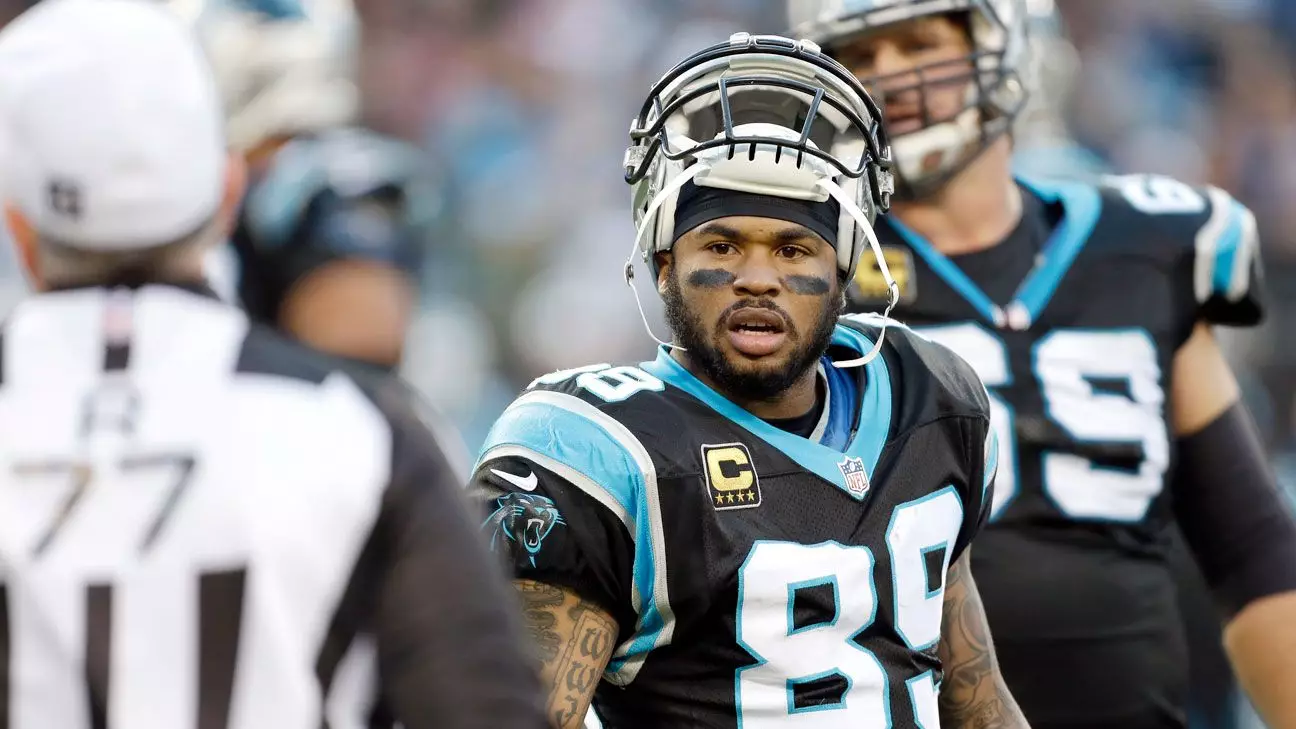The football universe is no stranger to spirited debates, particularly when it involves prominent figures delving into past experiences. Recently, the tension surrounding former Carolina Panthers players Steve Smith Sr. and Cam Newton has reignited discussions about the team’s history during a transitional period. This discourse is particularly relevant as it raises important questions about leadership, individuality, and collective responsibility in professional sports.
During a podcast segment with Travis Hunter, Cam Newton, the Panthers’ first overall pick in 2011, discussed his experiences with the franchise, asserting that he walked into a locker room composed of “losers.” His assertion was bolstered by the team’s notable 2-14 record the previous season. Newton emphasized the weight of playing quarterback, indicating that crucial game impacts stem from this position and that success hinges on team mentality. Such a strong declaration, however, prompted a vehement response from Steve Smith Sr., a former teammate, and an illustrious wide receiver for the Panthers.
Smith, a dedicated athlete who became synonymous with Carolina’s identity during his tenure, was quick to challenge Newton’s inflammatory words. His frustrations erupted onto social media, highlighting a nuanced understanding of team dynamics and individual accountability. Smith’s reaction serves as a unique lens through which we can analyze how narratives are crafted within sports, particularly how one individual’s remarks can provoke reflection on a collective’s identity.
One of the most poignant dimensions of this controversy lies in the discussions surrounding accountability among players. Newton’s self-identified role as the savior of the franchise metaphorically positions him on a pedestal above his peers. In his comments, there exists an implication that success can be singularly driven rather than collectively nurtured. This notion dismisses the multifaceted contributions of all players involved, illustrating how quickly individual success can eclipse the efforts and struggles of others.
Smith’s retort reminds us that the identity of a team is not merely defined by its records or statistics but by the shared journeys of its members. From injuries to personal struggles, every season is a tapestry of trials that build unity and resilience—making each player’s contribution, regardless of their role, crucial to the overall narrative. Ignoring this reality doesn’t merely denigrate past teammates; it undermines the shared history of a franchise.
Conversations like this extend beyond the immediate context of the Panthers. They reflect the dynamics of leadership within professional sports. The platform and influence famed athletes command prompt responsibilities that go beyond the locker room and into the community of fans they inspire. The words used—whether in jest, truth, or frustration—carry weight and reflect on the culture of the sport itself.
Smith’s disappointment with Newton’s comments signals an expectation from veterans to consider and respect the contributions of predecessors when discussing a team’s legacy. In an era where social media amplifies every remark, the effects of public declarations are magnified; athletes must navigate this landscape with a keen sense of responsibility towards their past and future commitments.
As Steve Smith prepares for his potential induction into the Pro Football Hall of Fame, the tension between him and Newton underscores a broader journey concerning legacy—one that encompasses triumphs and tribulations alike. Leadership is forged in adversity, and success is often a collective undertaking rather than a singular endeavor. Newton’s tenure undoubtedly lifted the franchise, yet Smith’s perspective serves as a reminder that true legacy is built on mutual respect and acknowledgment of all those who contributed to that journey.
In this ongoing discourse, one hopes both players might reflect on their comments and find a path to celebrate their complex histories rather than cast aspersions on one another. Each played a vital role in shaping the Carolina Panthers and their stories will forever be interwoven in the fabric of the franchise. As they continue to navigate their respective paths in the eyes of fans and insiders alike, it would serve both Smith and Newton to remember that their legacies are indeed intertwined—a blend of struggle, growth, and shared history.

